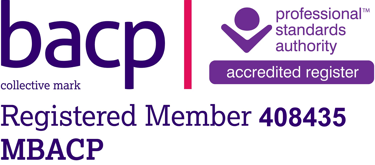
Queer people experience particular challenges. There is often a tension between authenticity, expressing oneself and acceptance from wider society. Exploring this, when many have experienced rejection and marginalisation on account of their queerness, can be a life's work.
I've worked in specialist services for LGBTQ+ people, working with all genders, sexualities and relationship types to explore the contours of these difficulties. My therapy room is a space in which you can talk about your life and be met with kindness, and not judgement.
Many LGBTQ+ people come to therapy having experienced misunderstanding, rejection, or the quiet exhaustion of not feeling seen. Therapy can be a chance to rest from that - to be understood as you are, not as others expect you to be. You don't have to explain or defend your identity. You don't have to edit yourself. This is a place where your story matters.
About Therapy for LGBTQ+ People?
Perhaps you're struggling with anxiety or depression, with relationships, or with the impact of discrimination. Maybe you're questioning or exploring your gender or sexuality. Or perhaps you simply want a space to reflect on identity, belonging or connection. Whatever brings you here, therapy can help you explore how your experiences have shaped you and what it means to live more freely.
And I want to acknowledge too that the current political climate is particularly challenging for trans people. Therapy offers a space to explore that - the anger, the exhaustion, the fear. It also offers space to explore resilience, joy and the parts of your identity that have helped you survive and grow.
My Approach
I trained at the Minster Centre, one of the UK's leading psychotherapy trainings. I’ve worked extensively with queer and trans and non-binary clients, and those exploring sexuality, identity and belonging.
My approach is integrative, meaning I draw from a range of traditions - psychodynamic, humanistic, mindfulness-based - depending on what feels right for you. Above all, I aim to create a space where you feel seen, understood and accepted. Many people experience therapy not as a process of changing who they are, but of coming home to themselves, slowly, steadily, and in their own time.
Why Contact Me?
✓ Trained at the Minster Centre, one of the UK’s leading psychotherapy institutions
✓ Experienced in supporting people with anxiety, depression, grief, stress and burnout
✓ Over two years working in a bereavement service, alongside specialist work
✓ An integrative therapist, drawing from different traditions to tailor therapy to each person
✓ A background in working with activists, changemakers, leaders and ex-boarders
✓ Committed to creating a safe, empathic and collaborative therapeutic space


My pronouns are he/him
Start Your Therapy Journey Today
If you'd like an introductory session, please email me or message me using the details below. Alternatively, please schedule a call using calendly.
Phone
Location
231 Shoreditch High Street, E1 6PJ or Online
FAQs About Therapy for LGBTQ+ People
Do I need to talk about my sexuality or gender in therapy?
Only if you want to. Some people come to therapy to explore identity directly, others prefer to focus on relationships, anxiety, grief or other concerns. You decide what feels relevant and important. My role is to meet you where you are and to support whatever feels meaningful to you.
What if I've had a negative experience with therapy before?
Sadly, some LGBTQ+ people have had unhelpful or even harmful experiences in therapy. If that's true for you, we can take time to talk about what happened and what you need to feel safe this time. You'll always have control over what you share, and the pace we move at.
Do you offer online sessions?
Yes. I offer therapy both in person in Hackney, East London, and online via secure video call. Many clients appreciate the flexibility of online sessions, while others prefer the grounding of meeting face-to-face. We can discuss what feels best for you.
How do I start?
You can begin by arranging an introductory session. It's an opportunity to meet, ask questions, and get a feel for how therapy might work for you. There's no obligation to continue, simply a chance to begin the conversation.


Qualified therapist based in Hackney, London
© 2025 Andrew Tobert Therapy | Terms & Conditions | Privacy Policy